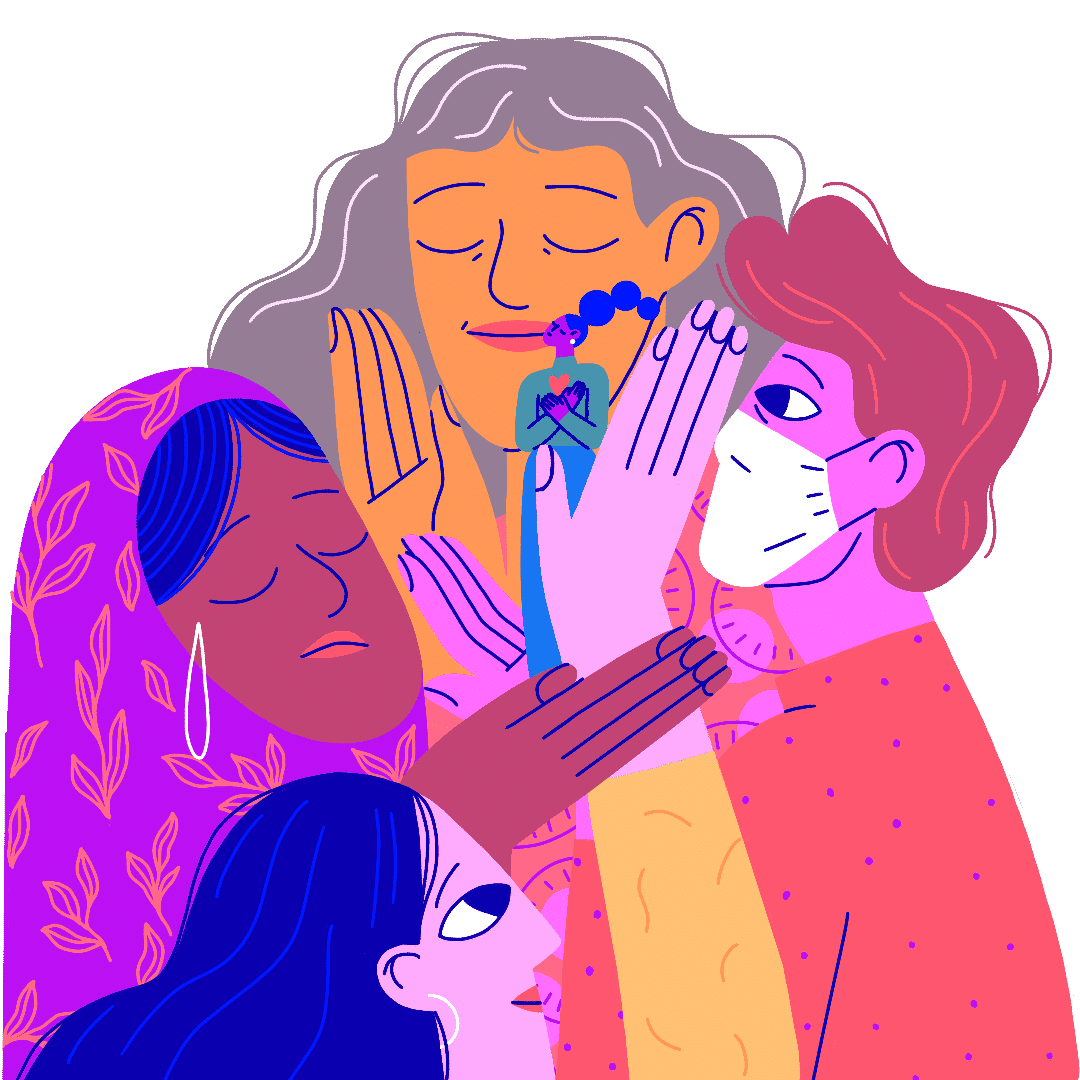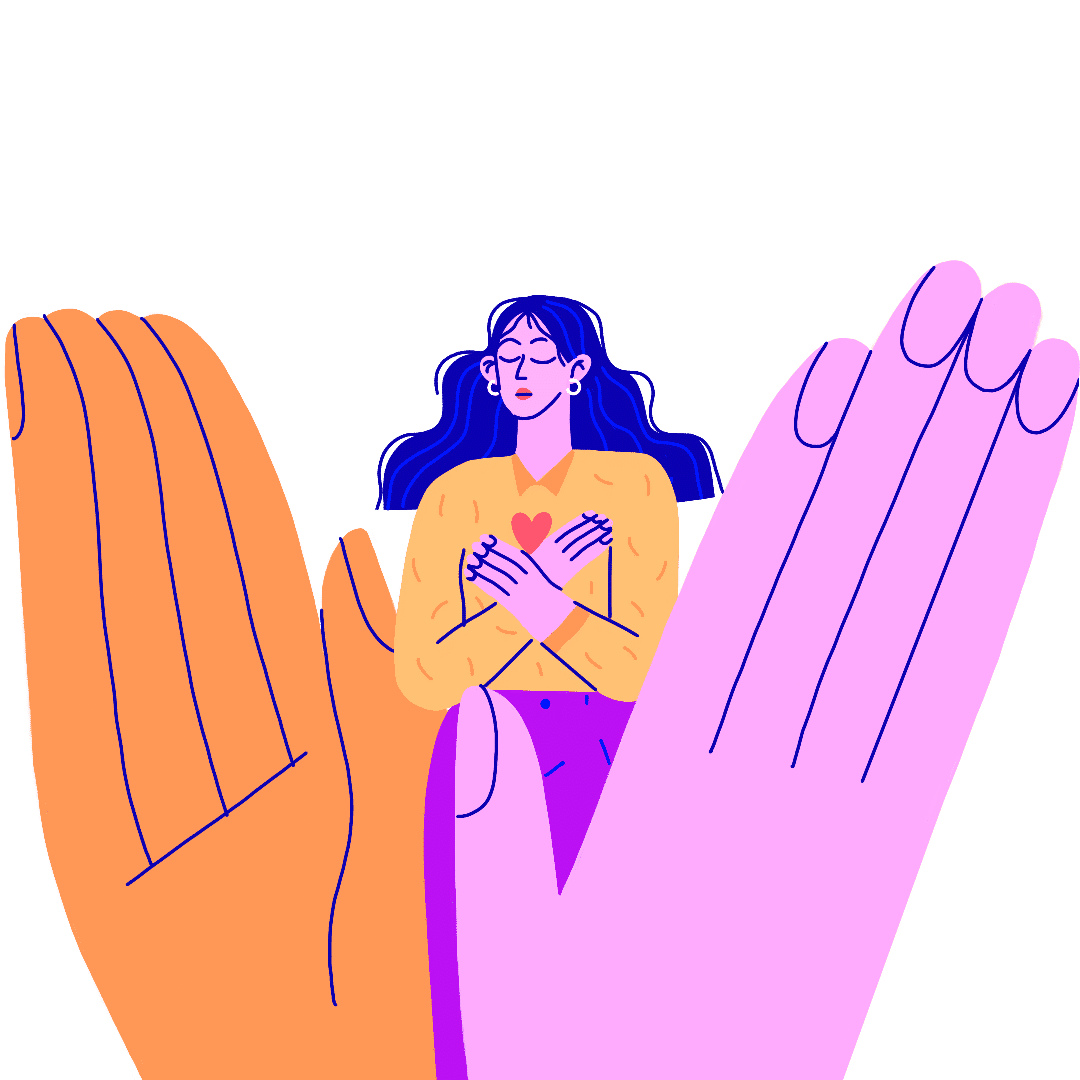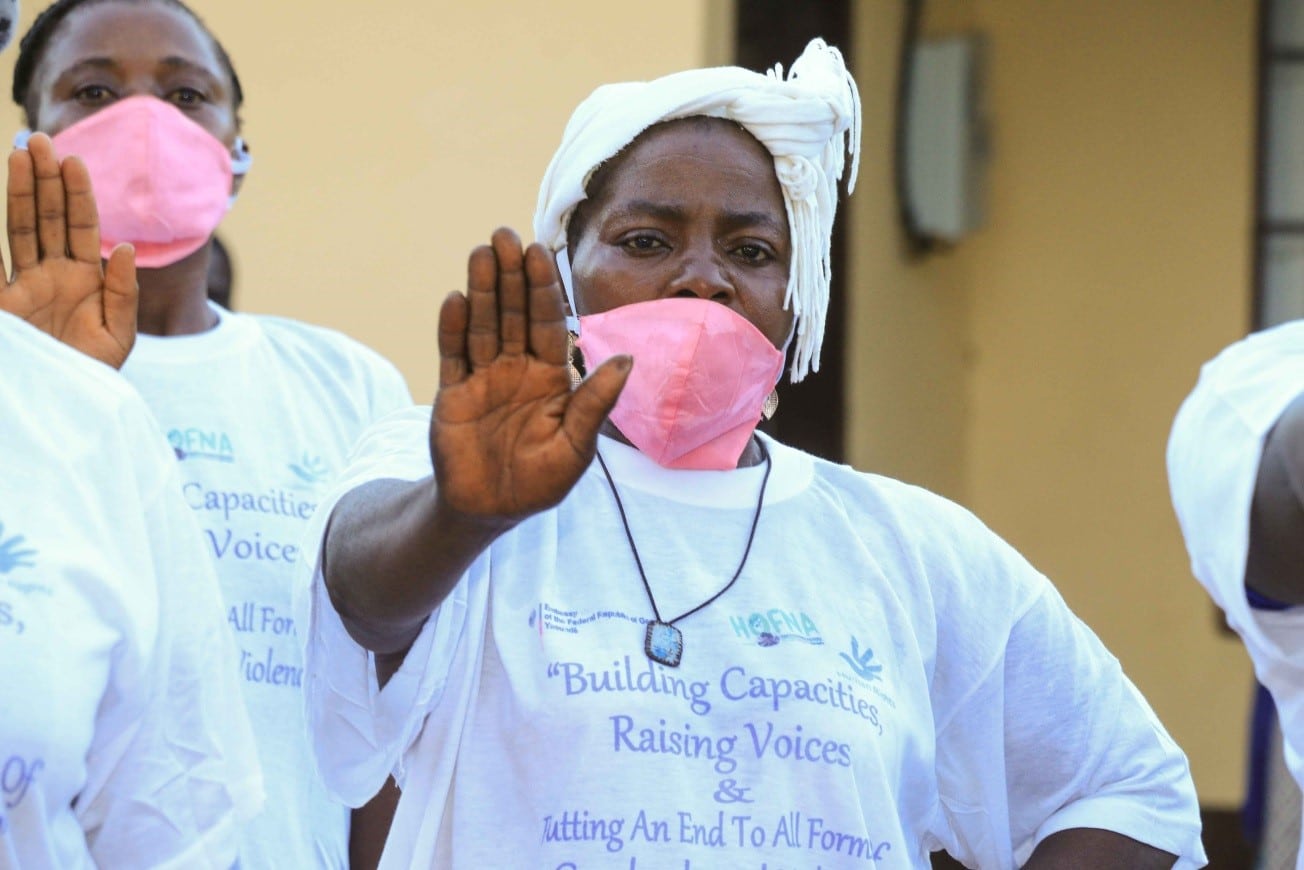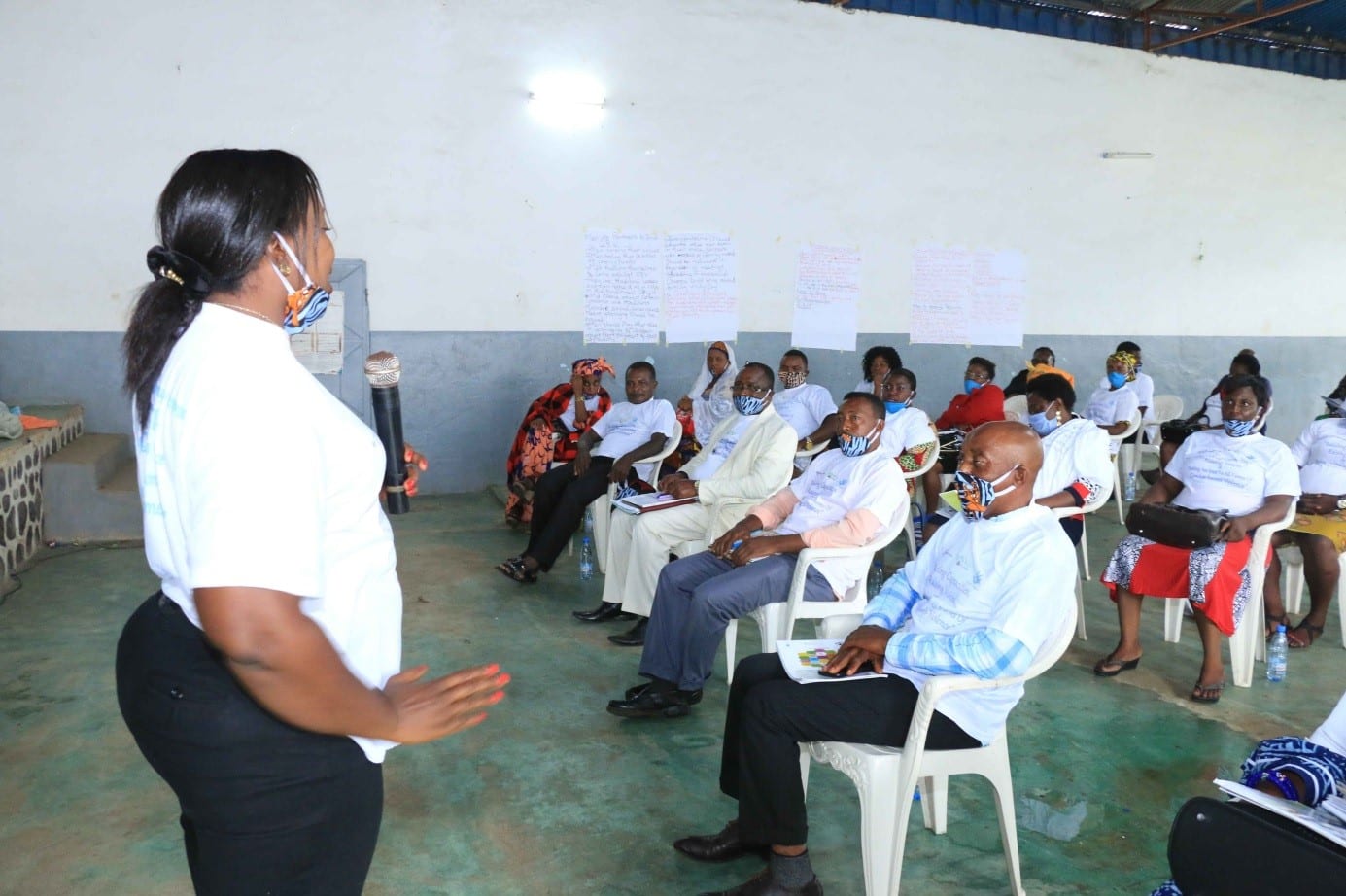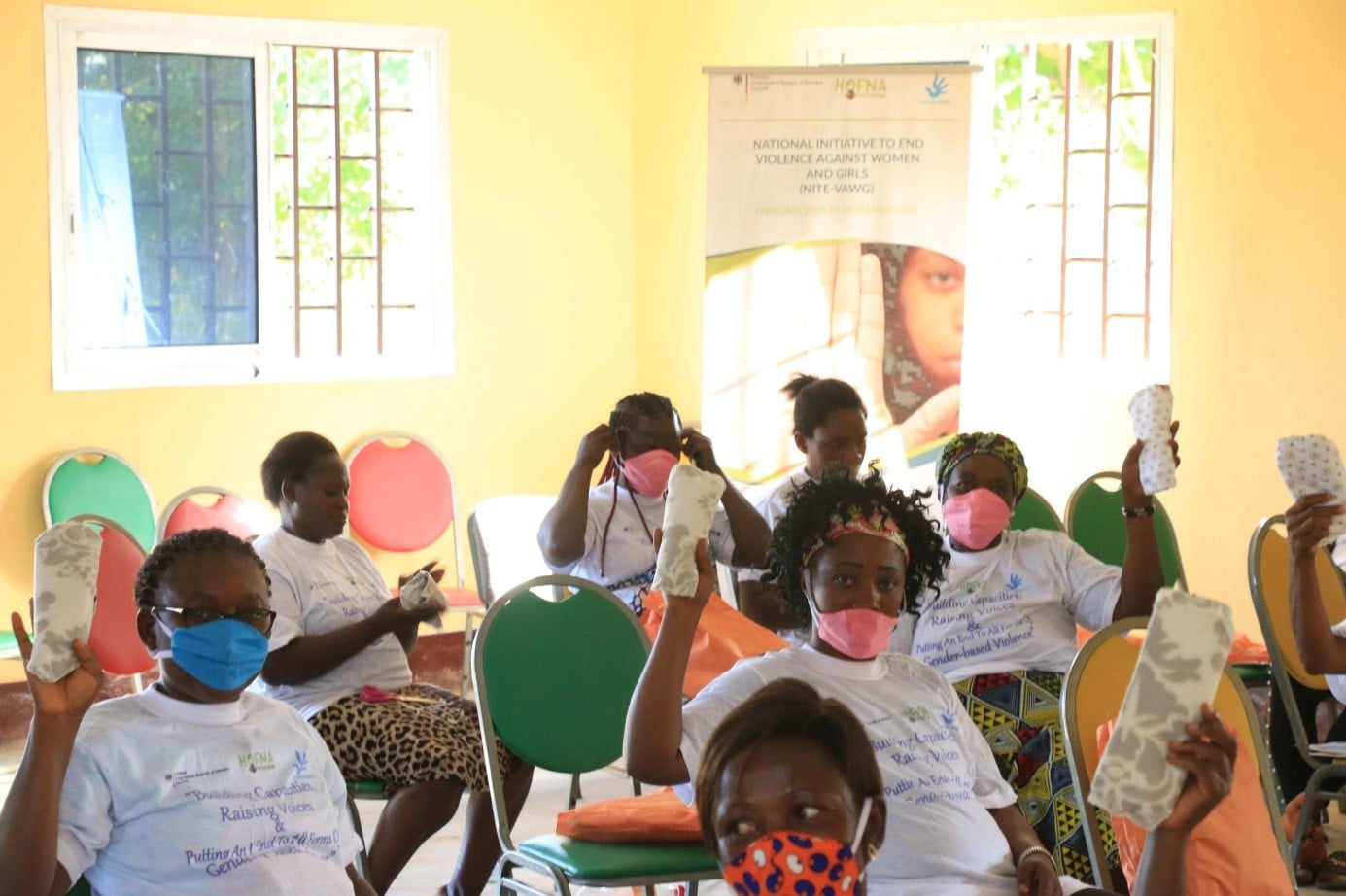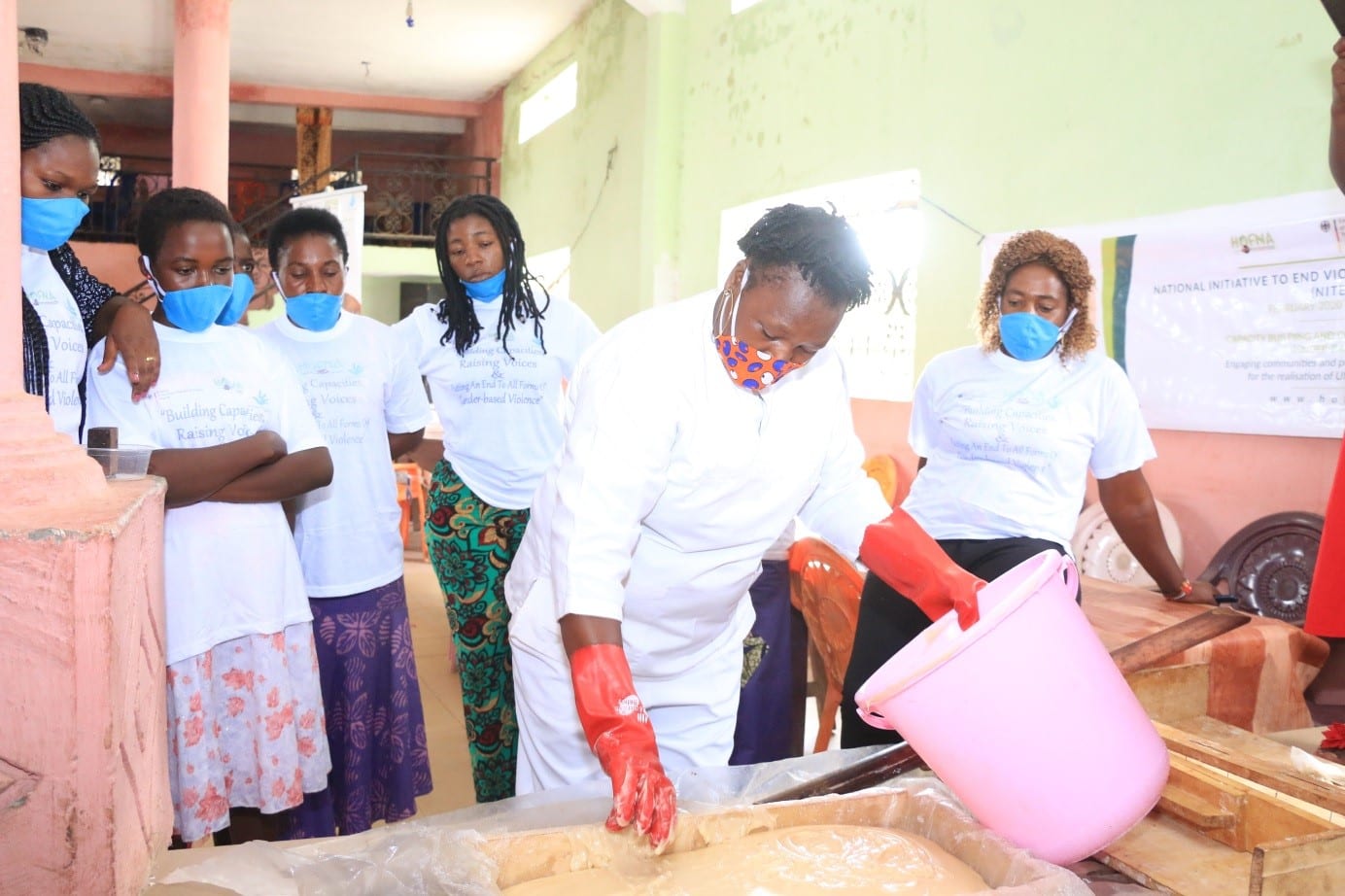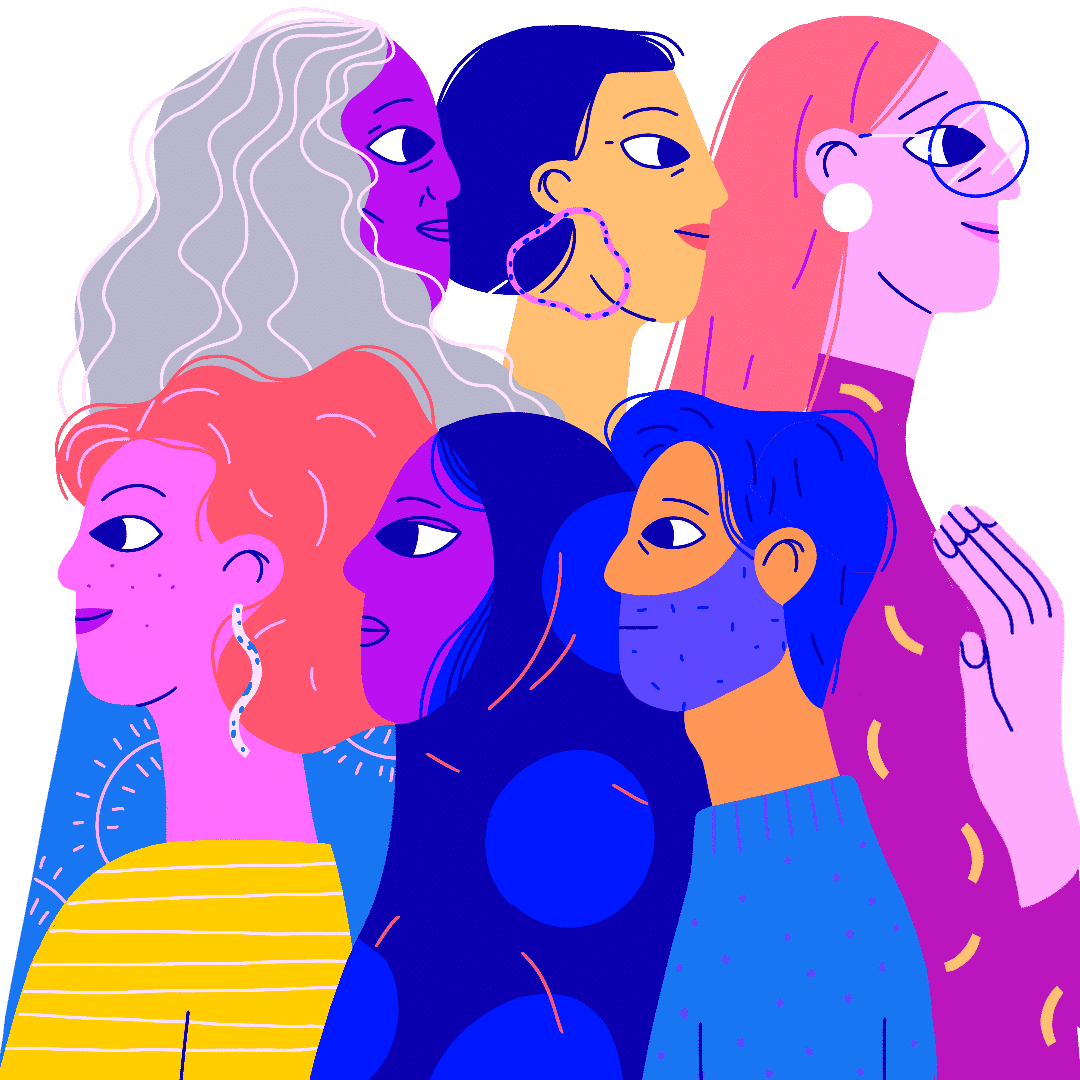The prevention of and protection against sexualised and gender-based violence is vital to the maintenance of world peace and international security, as the UN Security Council acknowledged in the year 2000. In the ground-breaking Resolution 1325, it affirmed that sexualised and gender-based violence are connected with the failure of attempts to restore peace and security and to rehabilitate societies. Germany is working to tackle the causes of gender-based violence; protecting women, children and men from sexualised violence; and providing support for survivors of sexualised violence.
Azerbaijan
TV programming for gender equity
Project partner
Women's Association for Ration Developament (WARD), Center for Independent Social Research (CISR)

Language shapes the way we think and vice versa – and it influences how we think about gender. The Sen Deme TV project is focused on exactly that: it seeks to help raise awareness of gender-conscious language and spark conversation about existing perceptions of gender roles and equal opportunities in Azerbaijan. In so doing, it is contributing to greater equity between the sexes and turning a spotlight on discrimination and inequality as causes of gender-based violence. In so doing, it is contributing to greater equity between the sexes and turning a spotlight on discrimination and inequality as causes of gender-based violence. Run by the Women’s Association for Rational Development, or WARD, the project receives funding from the Federal Foreign Office. It is partnered in Germany by the Berlin-based Center for Independent Social Research CISR e. V.
We learn how society works through television. We hear it on the news and on talkshows, but entertainment formats like films and sitcoms transmit societal values too. This is particularly true when it comes to the relationship between men and women, or their roles in society. The aim of this project is to communicate gender-related values via television. Its approach is twofold. Firstly, ten themed TV programmes showcasing female role models will be broadcast as an inspiration to viewers. The idea is that discussions about discrimination and the obstacles women face will also make the viewing public more alert to the challenges that exist in Azerbaijan. . Secondly, in order to promote gender equity in the media on a long-term basis, a handbook and checklist are being put together which will be used to provide training for 60 journalists.
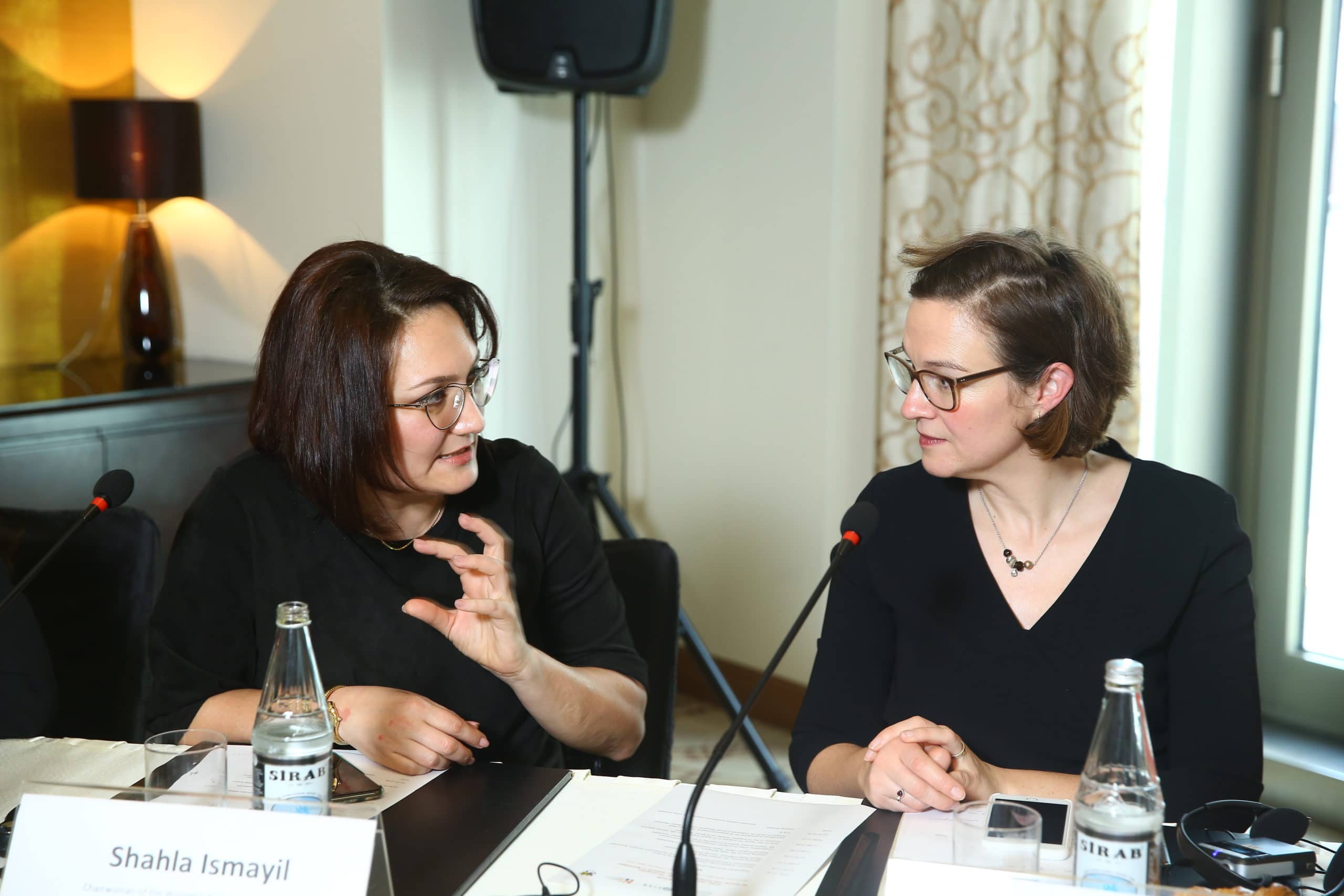
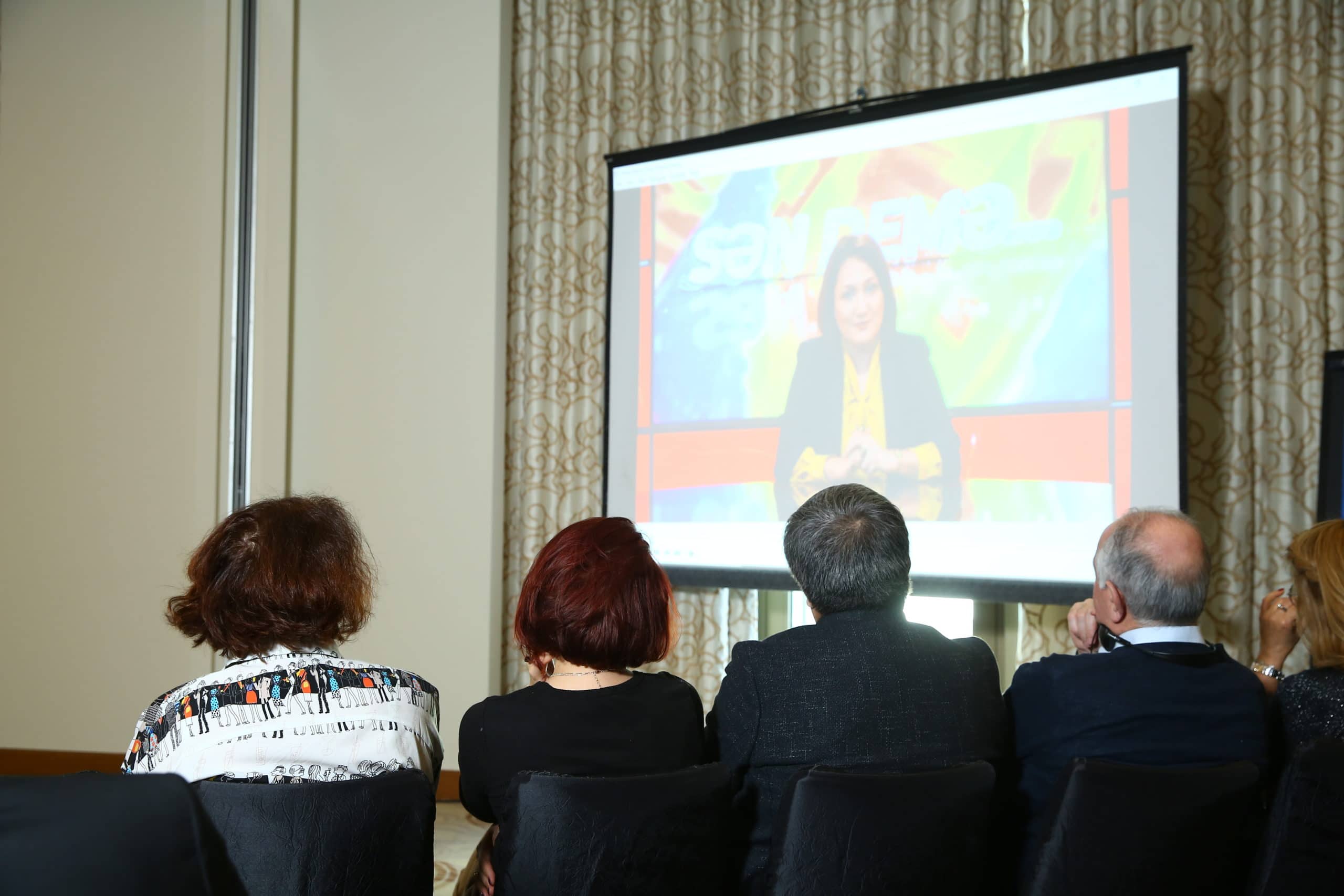
Colombia
„Call it what it is“
tackling all forms of sexual violence
Project partner
Women’s Initiative for Gender Justice (WIGJ)
Video © Women’s Initiatives for Gender Justice
For decades the armed conflict in Colombia was accompanied to a great degree by sexual and gender-based violence. The peace agreement which was signed by the government and the armed FARC group in 2016 couldn’t put a stop to this. Sexual violence remains a widespread problem within society. The number of sexual attacks has increased during the pandemic.
Often sexual violence isn’t reported or goes unpunished even if it is reported. There are many reasons for this. It is often the case that victims of sexual violence are stigmatised and receive insufficient help. They are put under pressure not to go to the police. Or they don’t have access to the justice system because they live in remote areas. In some cases, the experiences of survivors aren’t recognised as sexual violence. This is because while rape, forced pregnancy and forced sterilisation are clearly defined in international law, other forms of sexual violence are not. This means that some acts, which survivors have experienced as sexual violence, aren’t taken into account in court proceedings. For example, these could be non-penetrative sexual acts, injuries to the sex organs as well as measures which deny people their right to choose to procreate.
In order to raise more awareness of all forms of sexual violence, the organisation Women’s Initiatives for Gender Justice and its partner organisation Women’s Link Worldwide are working on a publicity campaign with state institutions. Workshops are to be carried out in particular with judges and lawyers. In addition, they are developing an app which will make information about relevant authorities and possible procedures for filing a police report available to affected individuals, particularly young women.
Through this work the organisation is making an important contribution to better understanding sexual violence. Only with this can we ensure that perpetrators are brought to justice, survivors receive adequate support and sexual violence is successfully tackled.
Cameroon
Working together to overcome violence against women and girls
Project partner
Hope for the Needy Association Cameroon (HOFNA)
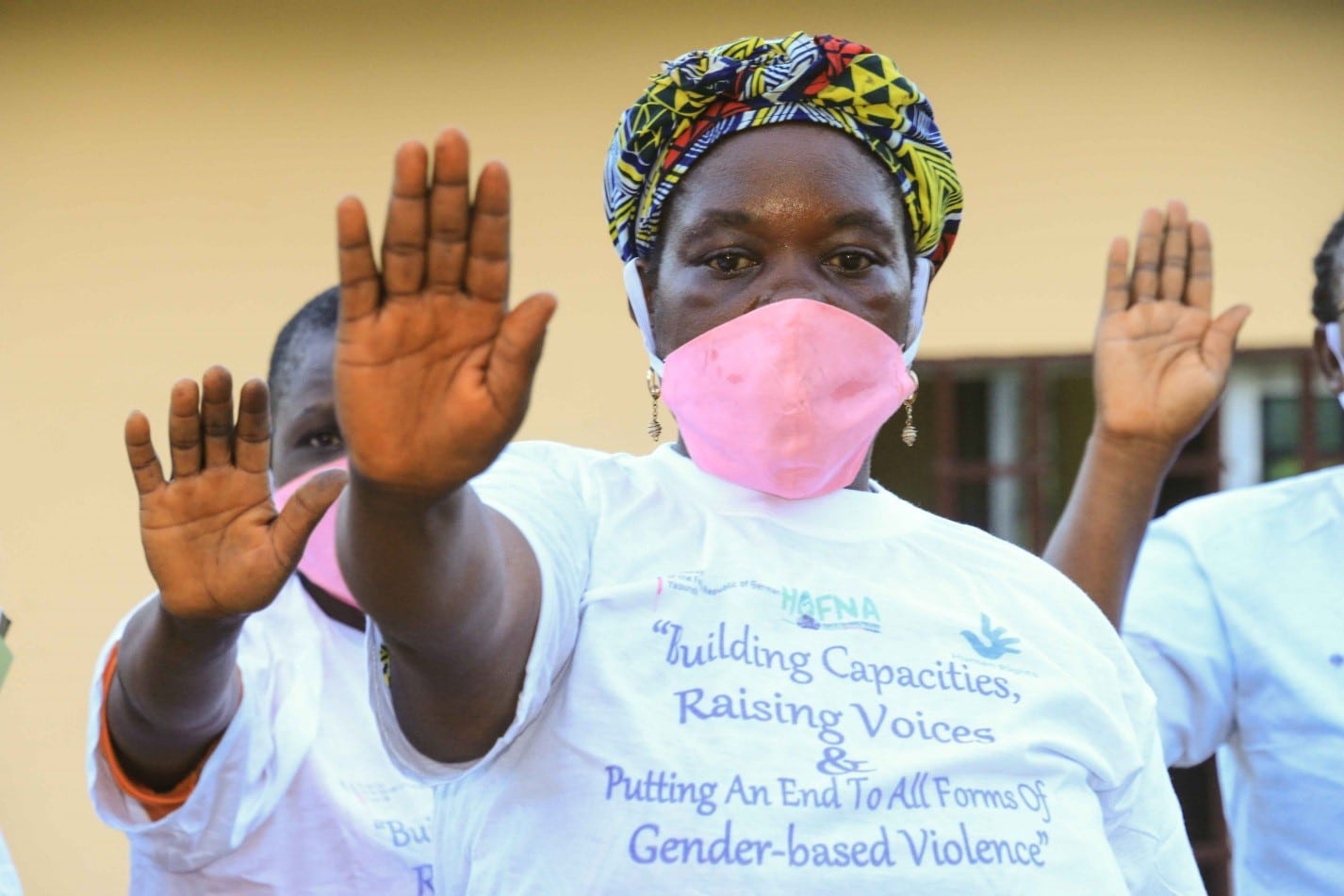
© HOFNA
How can systematic violence against women and girls be overcome in a region which is marked by conflict and violence? How can survivors of violence build new perspectives despite conflict and economic restrictions? The Cameroonian organisation Hope for the Needy Association (HOFNA) is seeking answers to these questions – and finding them in a networked approach.
Violent clashes between the security forces and separatist groups have been an everyday occurrence since 2016 in the two English-speaking regions of Cameroon, South-West and North-West. The conflict parties have repeatedly been accused of breaching human rights. Young girls and women in particular are victims of sexual and gender-based violence.
Young girls and women in particular are victims of sexual and gender-based violence. It has two objectives: to overcome violence against women and girls in the whole of Cameroon; and to support women and girls from disadvantaged communities in taking on leading roles in politics and society so that they can confidently shape the development of their country.
As a result, the project encompasses calls for both strengthening participation of women in political processes and protection against sexual and gender-based violence. At a national human rights conference, HOFNA approaches civil society figures, women’s rights organisations, traditional and religious leaders, government representatives and security bodies. All of them are trained as points of contact for gender-based violence in their communities, together forming a national support network. In addition, internally displaced girls and women in urban areas are supported in setting up small businesses or income-generating activities. In addition, internally displaced girls and women in urban areas are supported in setting up small businesses or income-generating activities.
© HOFNA
Afghanistan
Männer und Jungen, die sexualisierte Gewalt überlebt haben, besser schützen
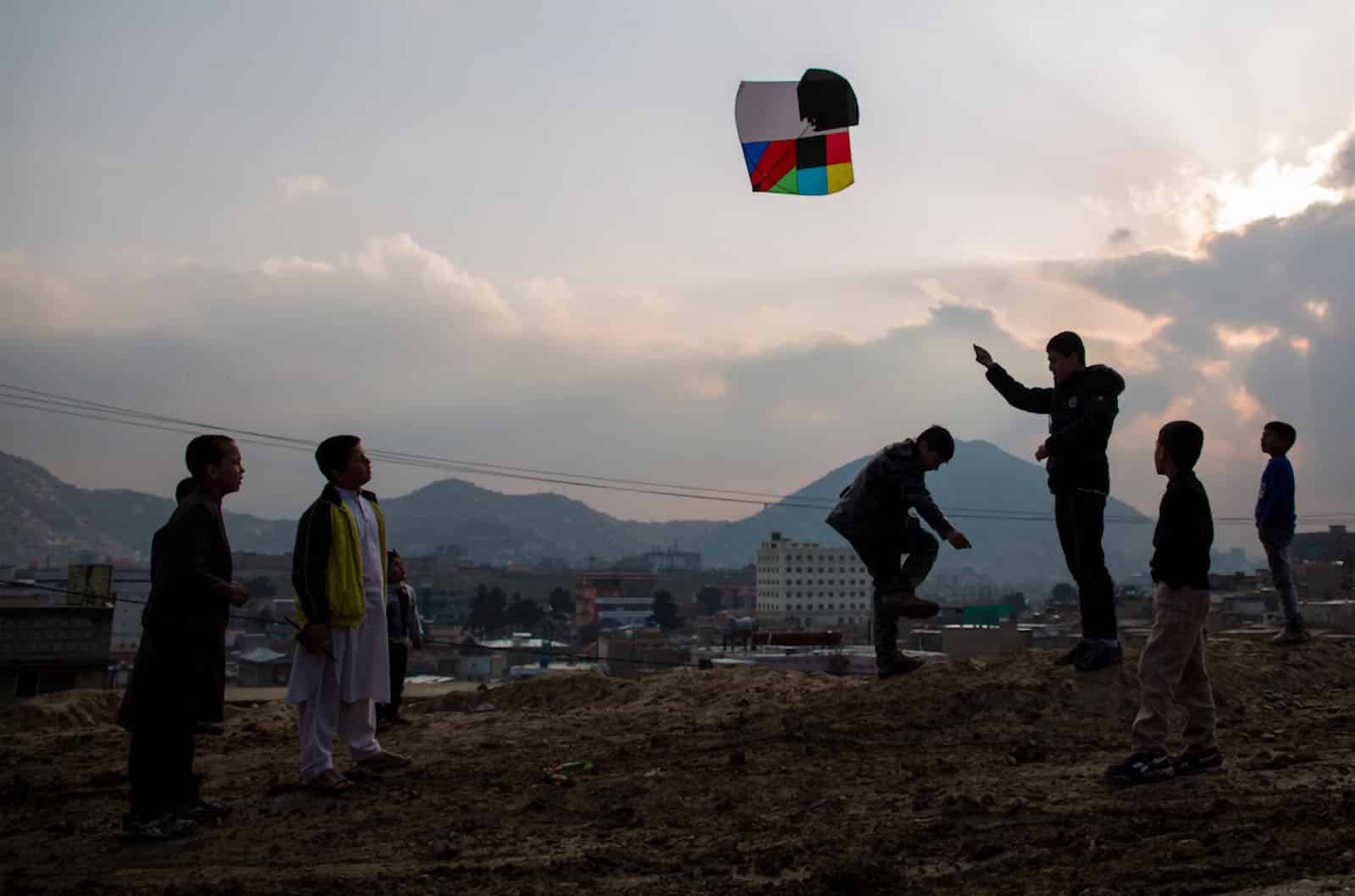
Children fly their kites on a hill in Kabul's Taimani neighbourhood, overlooking the city. © Stefanie Glinski, 2019 for All Survivors Project
Afghanistan has suffered decades of armed conflict involving multiple actors, which has resulted in a heavily armed, militarised society. Afghanistan has suffered decades of armed conflict involving multiple actors, which has resulted in a heavily armed, militarised society. They also generate considerable pressure on men and boys to conform to these norms, as rejecting them can bring dishonour and shame not only on the individual concerned but also on his family and wider community.
Sexual violence against children remains widespread in Afghanistan, within communities as well as in particular contexts such as schools, workplaces and the streets. However, men and boys who have been through sexual violence face significant obstacles in accessing healthcare. They do not know their rights and, like women and girls, lack access both to medical care and to justice. This is compounded by the exclusion and stigmatisation often experienced by survivors of sexual violence.
The overarching goal of the project is to facilitate the development and availability of healthcare and support services for all survivors of sexual violence, including boys and men, in three provinces of Afghanistan. The project will equip state and non-state healthcare providers with new knowledge, skills and tools to ensure that all survivors have access to appropriate, high-quality and safe services that are suited to the cultural context as well as to the gender and age of those they support.
